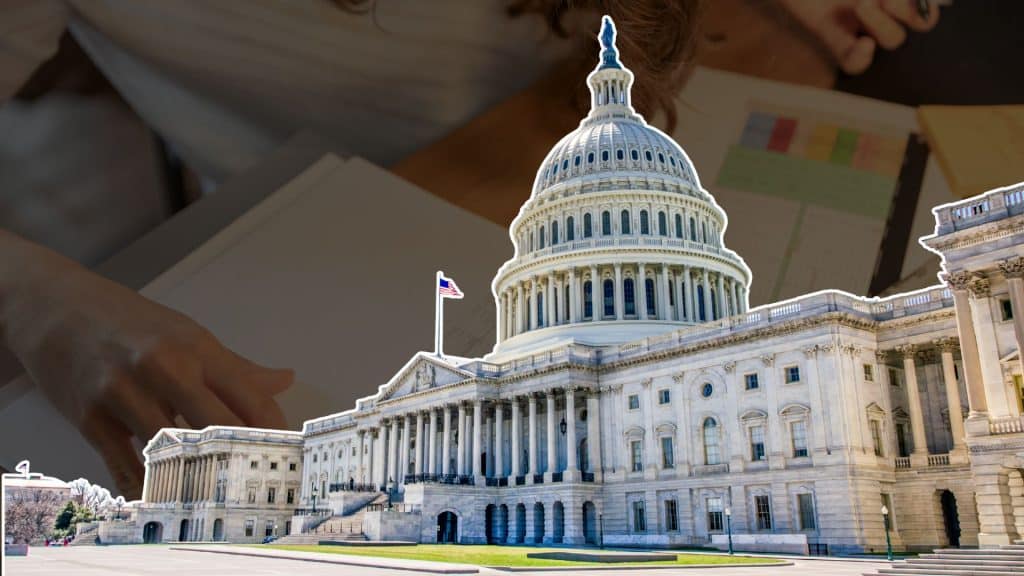Do you know how much money special interest groups spend each year trying to shape the laws that govern your life?
Lobbying ethics in politics has become a hotly contested issue as billions of dollars flow through Washington corridors.
While lobbying can provide valuable expertise to lawmakers, the current system raises questions about fairness and equal representation.
When wealthy corporations hire professional advocates while ordinary citizens lack similar access, democratic balance is affected.
Most Americans are aware that lobbying exists, but few understand how it operates or why ethical standards are important.
The relationship between money and political power creates situations every voter should grasp.
This blog will help you understand lobbying ethics, transparency requirements, and how you can support meaningful reform in American politics.
What Is Lobbying and Why Does It Matter?
Lobbying involves professional advocates who work to influence government officials on behalf of specific organizations or causes.
These individuals meet with lawmakers, provide research, and present arguments about proposed legislation that could affect their clients.
The practice serves an important function in democracy by enabling lawmakers to understand complex issues from diverse perspectives.
However, the massive amounts of money involved raise serious questions about equal access and fair representation.
Key aspects of modern lobbying include:
- Direct meetings with elected officials and their staff.
- Providing technical expertise on complicated policy issues.
- Organizing grassroots campaigns to build public support.
- Hosting events and fundraisers for political candidates.
- Drafting proposed legislation for lawmakers to consider.
This system works well when all voices have equal opportunities to participate. The issue appears when money buys lobbyists that ordinary citizens cannot match.
How Do Ethics Influence Lobbying Practices?

Ethical standards help ensure that lobbying serves the public interest rather than just private gain. These guidelines create boundaries that protect democratic processes from corruption and abuse.
Professional ethics require lobbyists to register their activities and report their spending to government agencies. This transparency enables the public to identify who is attempting to influence specific policies.
Ethical lobbyists focus on providing accurate information and presenting honest arguments, rather than employing deceptive tactics or offering inappropriate incentives to influence official decisions.
Strong ethical frameworks also prevent conflicts of interest, such as former government officials immediately lobbying their previous colleagues about issues they once regulated directly.
What Are the Biggest Ethical Challenges in U.S. Lobbying?
The current system faces several major problems that undermine public trust and democratic fairness in political advocacy and policymaking processes.
1. Revolving Door Problem
Many lobbyists are former government officials who use their inside knowledge and personal relationships to gain unfair advantages over other advocates.
This creates situations where policy decisions may favor those with the best connections rather than those with the strongest arguments or the broadest public support.
2. Unequal Access Issues
Large organizations command resources to amplify their messages, whereas grassroots advocates often face significant hurdles in reaching policymakers.
This imbalance means that some perspectives receive significantly more attention from lawmakers than others, potentially skewing policy outcomes in favor of special interests.
3. Gift and Entertainment Concerns
Some lobbyists attempt to cultivate relationships with officials through lavish meals, entertainment events, and other perks that blur ethical boundaries.
These practices can create obligations or expectations that compromise the independence of elected representatives when they make important policy decisions.
Why Is Transparency Important for Lobbyists?
Public disclosure requirements help voters understand which groups are attempting to influence their representatives and the amount of money involved in these efforts.
Key transparency benefits include:
- Tracking which industries spend the most on political influence.
- Identifying potential conflicts of interest in policy decisions.
- Monitoring whether officials receive disproportionate attention from certain groups.
- Ensuring lobbyists follow proper registration and reporting procedures.
- Creating accountability for both advocates and elected officials.
The Role of Fairness in Political Advocacy

Fair lobbying practices ensure that all legitimate interests have opportunities to participate in the democratic process without facing systematic disadvantages.
Equal Opportunity Access
Democratic systems work best when lawmakers hear from diverse perspectives rather than just the loudest or wealthiest voices in political debates.
Merit-Based Decision Making
Policy choices should reflect the strength of arguments and evidence rather than the political connections or financial resources of different advocacy groups.
Balanced Information Flow
Officials require accurate and complete information from multiple sources to make informed decisions that effectively serve the broader public interest.
Regulatory Approaches to Ethical Lobbying
Current federal laws require lobbyists to register with Congress and report their activities quarterly, including details about their clients and the amounts spent.
Many states have additional rules that restrict gift-giving, require more detailed reporting, or impose cooling-off periods for former officials.
Some reform proposals would extend these waiting periods, increase penalty amounts for violations, and require more frequent disclosure of lobbying activities.
Other suggestions include limiting the types of positions former officials can take in private advocacy firms and strengthening enforcement mechanisms.
How Can Voters Support Ethical Reform?
Citizens play a crucial role in demanding higher standards and accountability from both lobbyists and the officials they seek to influence.
Contacting Representatives: Reach out to your elected officials about specific legislation related to lobbying and ethics that promotes transparency and accountability.
Supporting Reform Candidates: Vote for political candidates who prioritize transparency, ethics reform, and limiting special interest influence in their campaigns.
Staying Informed: Keep track of which groups are lobbying on important policy matters that affect your community and daily life.
Grassroots Participation: Get involved in advocacy efforts for causes you care about to balance corporate influence with the voices of citizens.
Electoral Engagement: Participate actively in elections where ethics and lobbying reform are key issues being discussed by candidates.
Wrapping It Up
In summary, lobbying ethics in politics creates unequal access between wealthy interests and ordinary voters.
Key problems include the revolving door between government and lobbying firms, transparency gaps, and disproportionate influence from well-funded groups.
While regulatory frameworks exist, stronger enforcement and reform measures are needed.
Citizens hold the power to demand change through active participation, supporting ethical candidates, and staying informed about lobbying activities.
The future of fair representation depends on collective action to ensure all voices matter equally in our democratic process.
What changes would you most like to see in current lobbying practices to better balance special interests with public needs?






































